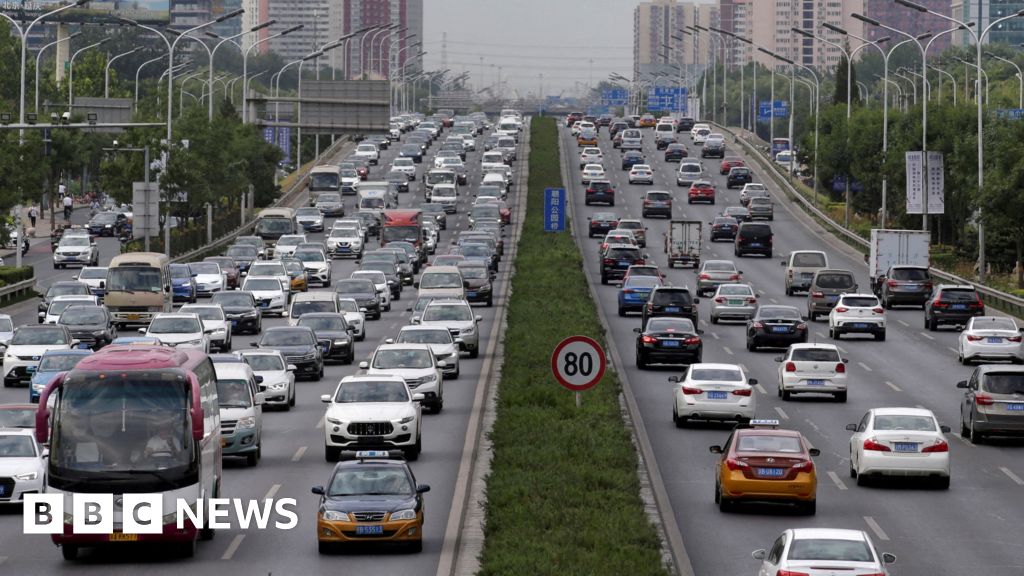When Chinese artificial intelligence firm DeepSeek shocked Silicon Valley and Wall Street with its powerful new A.I. model, Marc Andreessen, the Silicon Valley investor, went so far as to describe it as “A.I.’s Sputnik moment.” Presumably, Mr. Andreessen wasn’t calling on the federal government to start a massive new program like NASA, which was our response to the Soviet Union’s Sputnik satellite launch; he wants the U.S. government to flood private industry with capital, to ensure that America remains technologically and economically dominant.
As an antitrust enforcer, I see a different metaphor. DeepSeek is the canary in the coal mine. It’s warning us that when there isn’t enough competition, our tech industry grows vulnerable to its Chinese rivals, threatening U.S. geopolitical power in the 21st century.
Although it’s unclear precisely how much more efficient DeepSeek’s models are than, say, ChatGPT, its innovations are real and undermine a core argument that America’s dominant technology firms have been pushing — namely, that they are developing the best artificial intelligence technology the world has to offer, and that technological advances can be achieved only with enormous investment — in computing power, energy generation and cutting-edge chips. For years now, these companies have been arguing that the government must protect them from competition to ensure that America stays ahead.
But let’s not forget that America’s tech giants are awash in cash, computing power and data capacity. They are headquartered in the world’s strongest economy and enjoy the advantages conferred by the rule of law and a free enterprise system. And yet, despite all those advantages — as well as a U.S. government ban on the sales of cutting-edge chips and chip-making equipment to Chinese firms — America’s tech giants have seemingly been challenged on the cheap.
It should be no surprise that our big tech firms are at risk of being surpassed in A.I. innovation by foreign competitors. After companies like Google, Apple and Amazon helped transform the American economy in the 2000s, they maintained their dominance primarily through buying out rivals and building anticompetitive moats around their businesses.
Over the last decade, big tech chief executives have seemed more adept at reinventing themselves to suit the politics of the moment — resistance sympathizers, social justice warriors, MAGA enthusiasts — than on pioneering new pathbreaking innovations and breakthrough technologies.
There have been times when Washington has embraced the argument that certain businesses deserve to be treated as national champions and, as such, to become monopolies with the expectation that they will represent America’s national interests. Those times serve as a cautionary tale.
Boeing was one such star — the aircraft manufacturer’s reputation was so sterling that a former White House adviser during the Clinton administration referred to it as a “de facto national champion,” so important that “you can be an out-and-out advocate for it” in government. This superstar status was such that it likely helped Boeing gain the regulatory green light to absorb its remaining U.S. rival McDonnell Douglas. That 1997 merger played a significant role in damaging Boeing’s culture, leaving it plagued with a host of problems, including safety concerns.
On the other hand, the government’s decision to enforce antitrust laws against what is now AT&T Inc., IBM and Microsoft in the 1970s through the 1990s helped create the market conditions that gave rise to Silicon Valley’s dynamism and America’s subsequent technological lead. America’s bipartisan commitment to maintaining open and competitive markets from the 1930s to the 1980s — a commitment that many European countries and Japan did not share — was critical for generating the broad-based economic growth and technological edge that catapulted the United States to the top of the world order.
While monopolies may offer periodic advances, breakthrough innovations have historically come from disruptive outsiders, in part because huge behemoths rarely want to advance technologies that could displace or cannibalize their own businesses. Mired in red tape and bureaucratic inertia, those companies usually aren’t set up to deliver the seismic efficiencies that hungry start-ups can generate.
The recent history of artificial intelligence demonstrates this pattern. Google developed the groundbreaking Transformer architecture that underlies today’s A.I. revolution in 2017, but the technology was largely underutilized until researchers left to join or to found new companies. It took these independent firms, not the tech giant, to realize the technology’s transformative potential.
At the Federal Trade Commission, I argued that in the arena of artificial intelligence, developers should release enough information about their models to allow smaller players and upstarts to bring their ideas to market without being beholden to dominant firms’ pricing or access restrictions. Competition and openness, not centralization, drive innovation.
In the coming weeks and months, U.S. tech giants may renew their calls for the government to grant them special protections that close off markets and lock in their dominance. Indeed, top executives from these firms appear eager to curry favor and cut deals, which could include asking the federal government to pare back sensible efforts to require adequate testing of models before they are released to the public, or to look the other way when a dominant firm seeks to acquire an upstart competitor.
Enforcers and policymakers should be wary. During the first Trump and then the Biden administrations, antitrust enforcers brought major monopolization lawsuits against those same companies — making the case that by unlawfully buying up or excluding their rivals, these companies had undermined innovation and deprived America of the benefits that free and fair competition delivers. Reversing course would be a mistake. The best way for the United States to stay ahead globally is by promoting competition at home.


